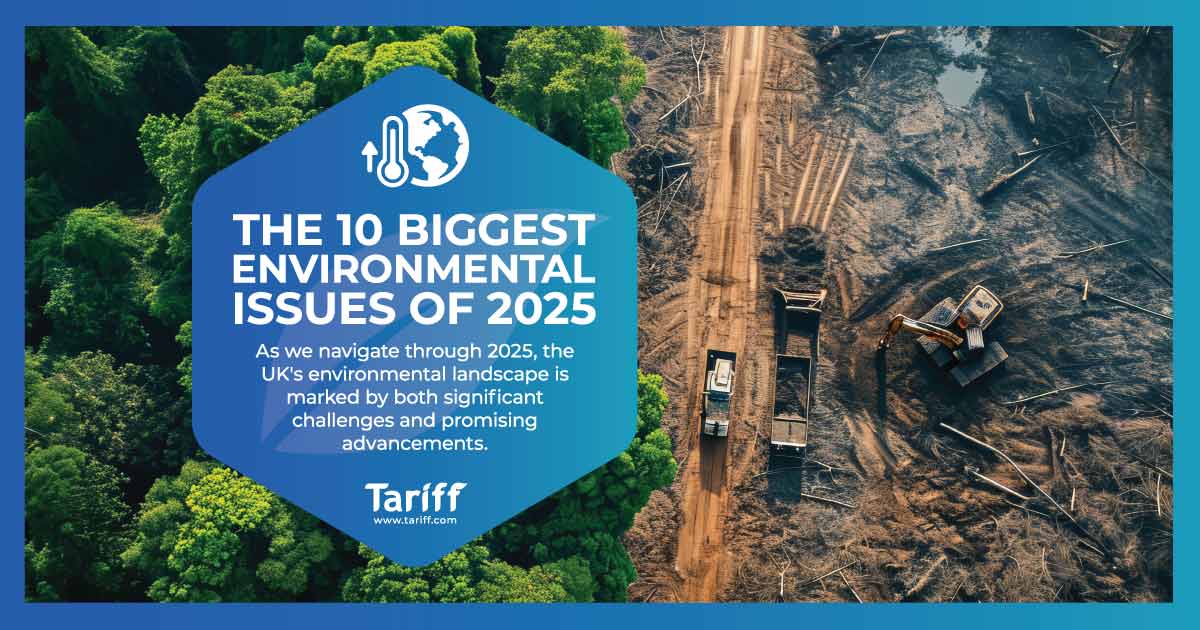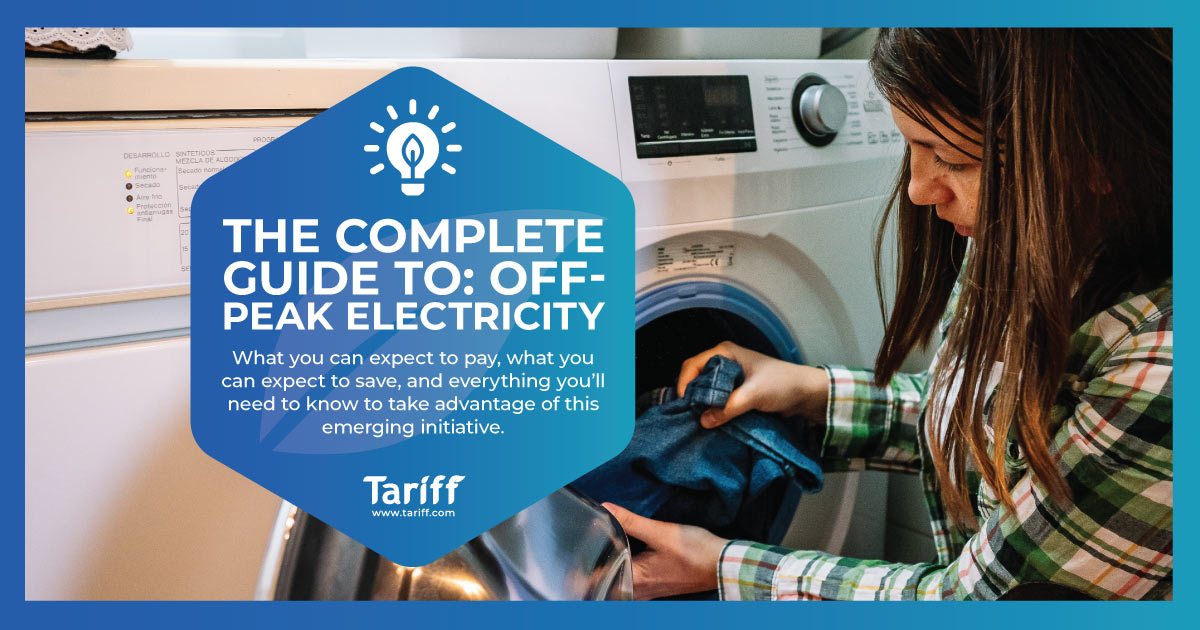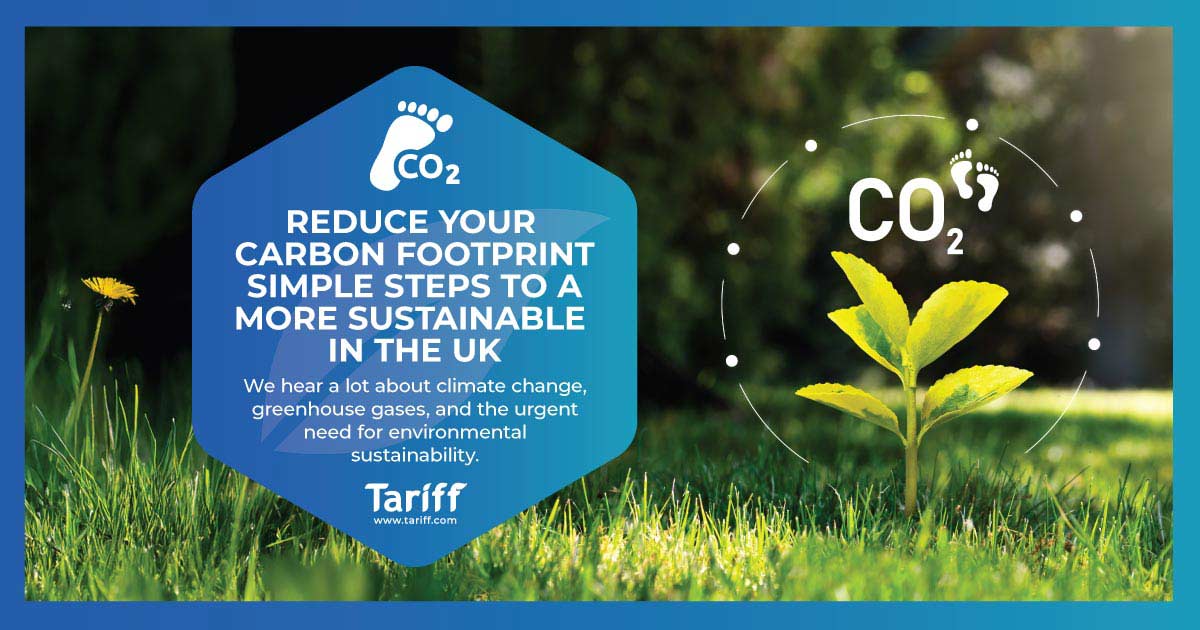Energy Saving Tips For Businesses Over The Winter Season
Whether you’re a small startup or a large business, managing your energy consumption is a crucial element of overall cost management. With the looming 2050 net-zero deadline, cutting energy usage and carbon emissions is paramount for all business to consider. In addition, following the recent turbulence within the energy market, cutting energy use is at the forefront of everyone’s minds as we approach the winter months.
As one of the UK’s frontrunners in business energy switching, Tariff provides advice, guidance, and a comprehensive package to get your business started on its renewable energy journey ,which will help you save on your long-term energy costs.
In this article, Tariff will help you cut costs to optimise your energy usage. We will be exploring a range of energy saving strategies, from simple daily tasks to more technological solutions, to help you save energy, cut costs, and help the environment.
9 Energy Saving Tips For Businesses
We’ve created a list of 9 top ways for your businesses to save energy this winter. This means cheaper energy bills, as well as being better for the environment in reducing waste and your carbon footprint. All of this results in slashing business costs, and beginning your all-important journey to net-zero carbon emissions by 2050.
1. Conduct An Energy Audit
The first step to reducing your energy usage is to work out where it is going! An energy audit provides you with a complete assessment of your consumption, so you can see the areas that you’re using the most energy.
The benefit of this is that you not only see the exact calculations of your energy usage, but you may find some surprising results about where your energy is going, so you can reduce inefficiencies.
Knowing where your energy is going is important to know where your money is going, so you can modify your usage and target areas where energy is being wasted. A typical audit procedure involves three steps:
- Evaluation
- Testing
- Efficiency
At Tariff.com, we simplify the process to provide you with clear, calculated results. This way, you’re provided with all the data you need to start meeting your energy- efficiency targets, cutting your carbon emissions ahead of the net-zero target.
2. Switch Your Energy Provider
Different energy providers offer different rates and types of contracts. Switching supplier may mean a cheaper rate, or different style of contract to your current provider. In a previous article, we explored the different types of utility bills and how they are calculated. For instance, with a fixed-rate contract, you may find better a rate with a different provider. This simple switch is an easy to reduce your costs and evaluate your usage.
An energy switching service can easily identify energy providers to suit you, securing a better deal for your business. With Tariff’s energy switching service, we’ll help secure you the best deal and will never pressure you into a deal that doesn’t suit your business needs.
Tariff helps you not only secure better deals for you, but for the environment. We’ll help you to conserve energy and reduce usage with a seamless transition to a more sustainable energy provider.
3. Install A Smart Meter
Smart or advanced meters make up 52% of all meters in the UK, and for good reason too! Unlike regular meters, smart meters provide completely accurate readings, so you pay a more accurately calculated bill. This isn’t the case with standard meters, where your usage is calculated using estimates.
Yet it’s not just costs you cut by installing a smart meter- according to the Data and Communications Company (DCC), smart meters can help save British homes over 600,000 tonnes of CO2 emissions a year.
Smart meters make it far easier to make energy-efficient choices, as you can see how much energy you’re using in real-time. For example, each time you boil a kettle, you’ll be able to see exactly how much it costs you. This helps you to see which activities and appliances are consuming a lot of energy and take action to reduce this or make swaps to more efficient options. This way, you can track bad habits and alter them for a cheaper bill and reduced environmental impact!
With Tariff, we will review your usage and aid your cut-costing plan by installing a smart meter. Our team will support you every step of the way, with our mission to help businesses help the planet.
4. Turn Down Your Heating
With the cold winter months fast approaching, it’s natural to want to keep your premises warm and turn the heating on for those cold nights! But turning up the heating by just 1 degree could add onto your bill! According to Citizens Advice, turning your thermostat down by just 1 degree can save 10% of your energy bill.
Instead of cranking the heating up, you can encourage staff to make simple swaps to save costs. Here are a few alternatives to cranking the thermostat up:
- Layering Up Or Relaxing Your Dress Code
- Close Curtains Overnight To Trap Heat
- Keep Windows And Doors Closed To Minimise Heat Loss
These simple measures help keep you warm, without the need to spend more on energy bills!
5. Minimise Draughts
To get the most from your energy, you should minimise draughts to stop heat escaping from your premises. Leaving windows and doors ajar allows heat to escape or spread to areas you don’t need. For instance, if you’re trying to maximise efficiency in a meeting room with the heating on, you should close the door to trap the heat in.
Leaving doors to external areas ajar means that on top of losing heat, you’re allowing cold air to infiltrate your business. Ensuring that doors are not wide open therefore is crucial for efficient heating, minimising waste, and your business’ carbon footprint.
Another cost-effective, simple solution to minimise draughts is purchasing a draught excluder, which fills the gap between the floor and the door. Filling this small space prevents warm air escaping and cold air infiltrating your business. They can be purchased at a low cost from many retailers and are easy to install also.
6. Install LED Lighting
Switching from regular halogen bulbs to LED lighting can save up to 70% of your energy, cutting costs and reducing your carbon footprint. They use up to 90% less energy than conventional halogen bulbs, making them a cheaper and more efficient alternative.
LEDs work by emitting light in a specific direction, so reflectors and diffusers that trap light are not required. Installing LED lighting helps you stay ahead of government policies too, with companies prohibited from manufacturing new inefficient halogen lighting.
The shift to LED light bulbs across the UK is predicted to cut 1.26 million tonnes of CO2, which is equivalent to removing 500,000 cars from UK roads!
LED lighting is easily installable with Tariff. We will help you find the best deal for your business, search the market, and provide a solution that works with you in mind.
7. Invest In Insulation
Most insulation works by reducing the level of thermal conductivity, by trapping the hot air produced by your heater in the walls. Without insulation, heat escapes through the gaps, leaving your building feeling cold despite having the thermostat cranked up.
Investing in insulation is a scientifically- proven way to trap heat inside your building. There are different variations of insulation, but all work in the same manner to reduce heat loss. Some common insulation materials are:
- Fiberglass
- Mineral Wool
- Cellulose
- Natural Fibres
- Polystyrene
- Reflective Foil
There are many more types of insulation materials on the market, all of which can help you reduce heat waste, therefore maximising your efficiency and value for money.
Investing in insulation ensures you not only feel the full benefit of your heating but reduce your energy waste, so whatever heating soliton you have this winter, you’re not wasting money on its escape! As a whopping 35% of heat escapes through walls and gaps, and 10% through the floor, its crucial to target these areas for maximum efficiency and to be cost-effective for your business.
8. Turn Off Your Devices Overnight
It may sound simple, but it’s not uncommon to forget to switch devices off after a long day doing business. Despite popular belief, popping devices on standby can still use energy. This is because they are still plugged in, therefore still consuming energy.
Figures indicate that leaving a single television on standby overnight can cost £24.61 per year, and this is just one device! Research by the Energy Saving Trust (EST) indicates that between 6% and 9% of electricity is consumed by appliances in standby mode.
Fully shutting down devices overnight can save a lump sum off your overall energy bill, reducing your business’ energy waste. This means lower costs, and a lower carbon footprint. Easy habits like these are a quickfire way to a more sustainable journey.
9. Upgrade Your Devices And Appliances
Investing in smarter devices is another way to minimise your energy losses, proving more cost-effective and efficient in the long-term.
For instance, boiling a kettle uses far more energy than a boiling water tap, which only boils the exact amount of water you need at a given time.
The installation costs of these devices are outweighed in the longer-term, with the savings and efficiency of smarter devices. Generally, a boiling water tap costs 3p per day on average, whilst a kettle costs approximately 2.5p per boil.
Changing your heat source is one of the best ways to save money and energy. For instance, heat pumps are far more efficient than gas boilers, and are able to generate heat at a lower temperature.
According to Ofgem, heat pumps have an average efficiency of 300%, whilst gas boilers are just 90% efficient. On top of this, heat pumps produce over 50% less annual CO2 emissions than gas boilers, at a rate of 844kg compared to 2532kg respectively.
Improving Your Energy Efficiency With Tariff
At Tariff, we want to empower businesses to act against climate change. That’s why we’ll always encourage you to consider switching to a green tariff. With our trusted providers, we promise to source the best deal for your business. Our 5-step strategy ensures that we’re here to provide support throughout your energy-saving journey.
We’ll get you on the path toward greener energy, so that your business stays ahead in meeting the 2050 net-zero emissions target. Whether you’re looking to go net-zero or simply reduce your energy consumption, Tariff is here to help you.
In addition to our energy switching service, Tariff can aid in energy saving in a range of areas, including:
- Business Water, Gas And Electricity
- Business Energy
- Heating Solutions
- Hydropower
- LED Lighting
- Solar Panels
Our full list of services and business utilities is available at the top of this page. Tariff has a wide range of services to help you improve your energy efficiency, and our team of professionals are here to provide guidance on what solutions are best for you. For any queries, or for a free, no-obligation quote, contact us today.




